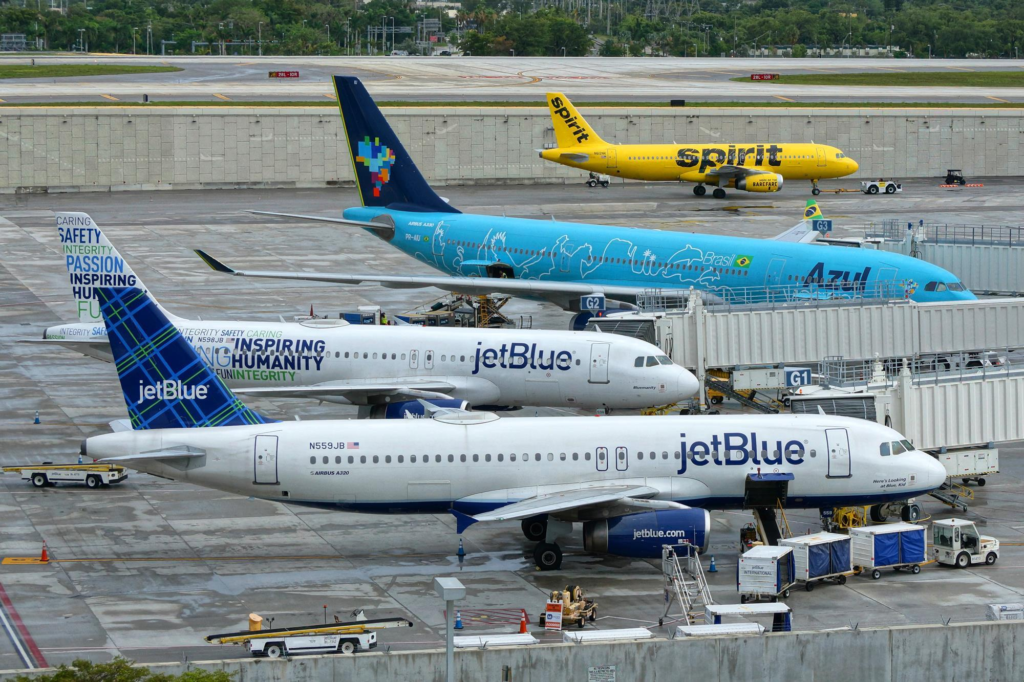NEW YORK- Spirit Airlines (NK) has formally objected to the proposed “Blue Sky” alliance between United Airlines (UA) and JetBlue Airways (B6), citing anticompetitive concerns.
The complaint was filed with the U.S. Department of Transportation (DOT) as United (UA) and JetBlue (B6) plan to deepen cooperation, potentially affecting key markets like New York (JFK) and Boston (BOS).
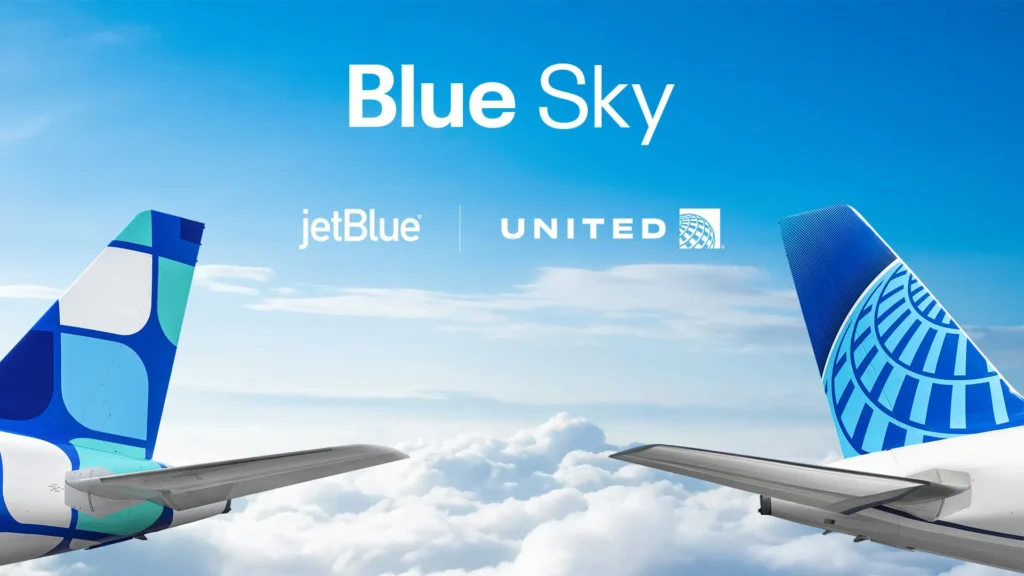
Spirit Against JetBlue-United Alliance
Spirit Airlines (NK) has asked the DOT to extend the review period and open the JetBlue–United partnership proposal to public scrutiny.
The ultra-low-cost carrier emphasized that the arrangement resembles the now-defunct Northeast Alliance (NEA) between American Airlines (AA) and JetBlue, which was struck down by a U.S. judge in 2023 for violating antitrust laws.
In its filing, Spirit referenced United’s own earlier position in the NEA case, where it supported full transparency and a public comment window. Spirit now expects similar regulatory rigor applied to this new tie-up.
Though limited public details exist about the “Blue Sky” plan, Spirit warns that it mirrors the NEA’s anticompetitive structure, especially through shared corporate accounts, loyalty integration, and potential coordination in constrained airport markets like JFK and BOS.
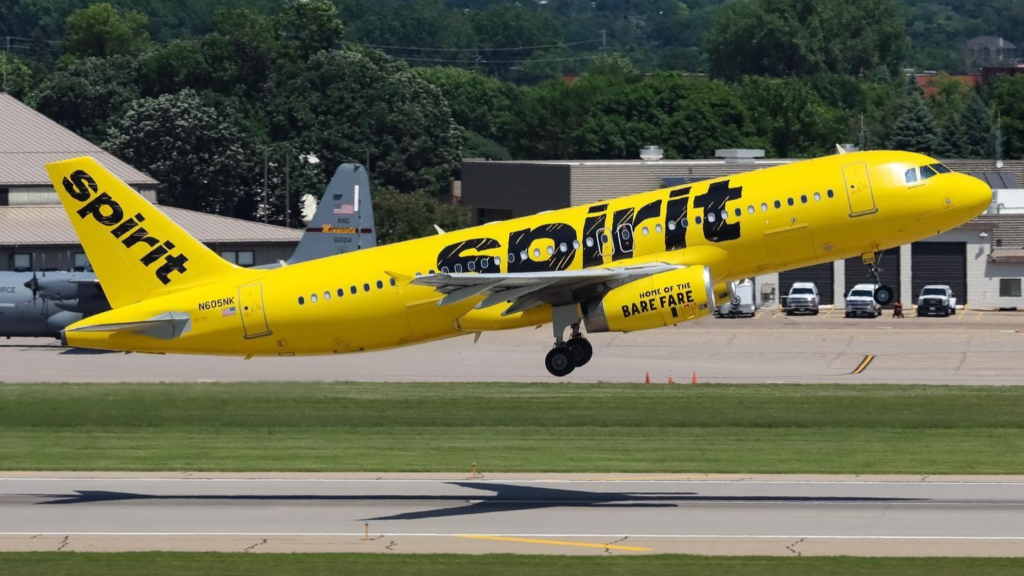
Key Objections Raised by Spirit
According to Spirit, the agreement may lead JetBlue to operate more like a subsidiary of United, sacrificing its pricing independence in favor of alliance synergies. Spirit argues that this dynamic could distort competition across both overlapping and non-overlapping routes.
A primary concern is loyalty reciprocity: JetBlue customers could earn and redeem United miles, compelling JetBlue to purchase miles from United, an expense Spirit suggests will be passed on to consumers through higher fares.
Moreover, the partnership could reduce access for new entrants or smaller carriers at congested hubs like JFK and BOS, undermining price competition and entrenching legacy dominance. Spirit claims this undermines low-fare carriers’ ability to compete, harming public interest in the long term.
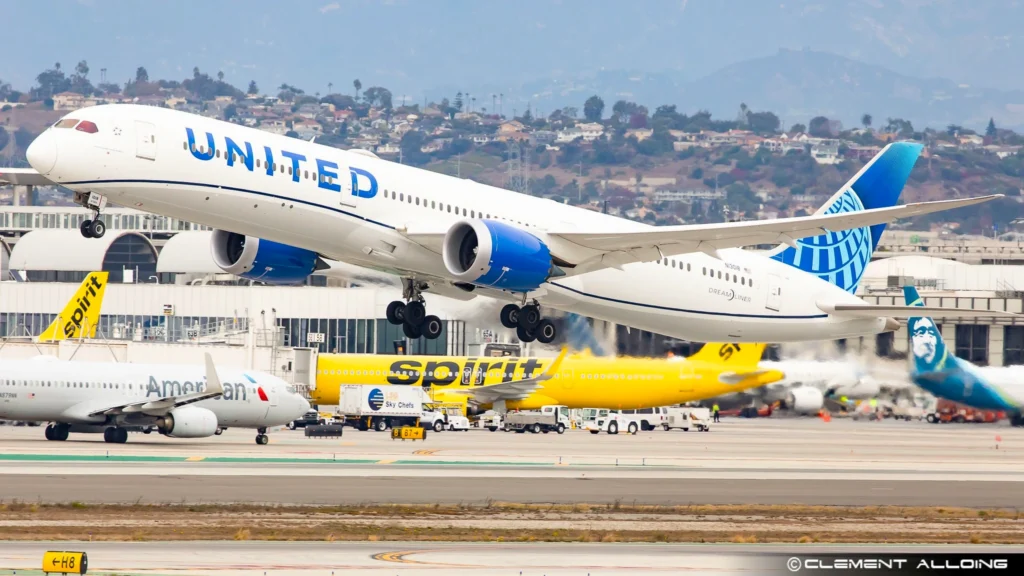
Evaluating the Competitive Impact
While objections over loyalty tie-ups may appear overstated, there is legitimate reason for scrutiny, especially regarding airport slot access and capacity planning.
If United uses the alliance to regain JFK slots or expand high-value corporate agreements, regulators may need to consider long-term structural implications.
The reality is that scale, not just low fares, is now essential in U.S. airline economics. Loyalty programs, credit card partnerships, and global connectivity drive profitability. Small, unaligned carriers are increasingly struggling to stay viable under these conditions.
Spirit is correct in noting the growing divide between major players and independent low-cost carriers, but the answer may lie in encouraging further consolidation rather than restricting partnerships outright.
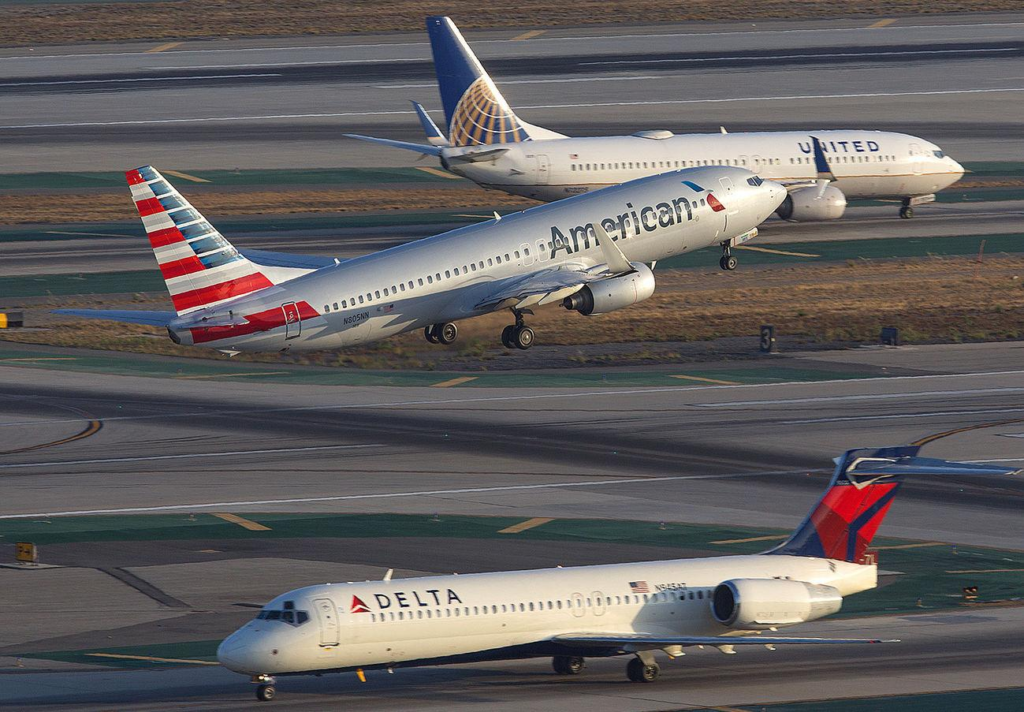
The Bigger Picture: Industry Trends
As the industry consolidates around the “Big Four”—American (AA), Delta (DL), United (UA), and Southwest (WN)—carriers like Spirit face a shrinking competitive runway.
Partnerships like “Blue Sky” may not be inherently anticompetitive, but they highlight structural advantages that large airlines enjoy, especially through network breadth and loyalty leverage.
With airfare increasingly subsidized by lucrative co-branded credit card programs, smaller carriers without such income streams are at a systemic disadvantage. Spirit’s filing underscores a growing concern: Can low-cost airlines remain viable in a system that rewards scale over simplicity?
Stay tuned with us. Further, follow us on social media for the latest updates.
Join us on Telegram Group for the Latest Aviation Updates. Subsequently, follow us on Google News

